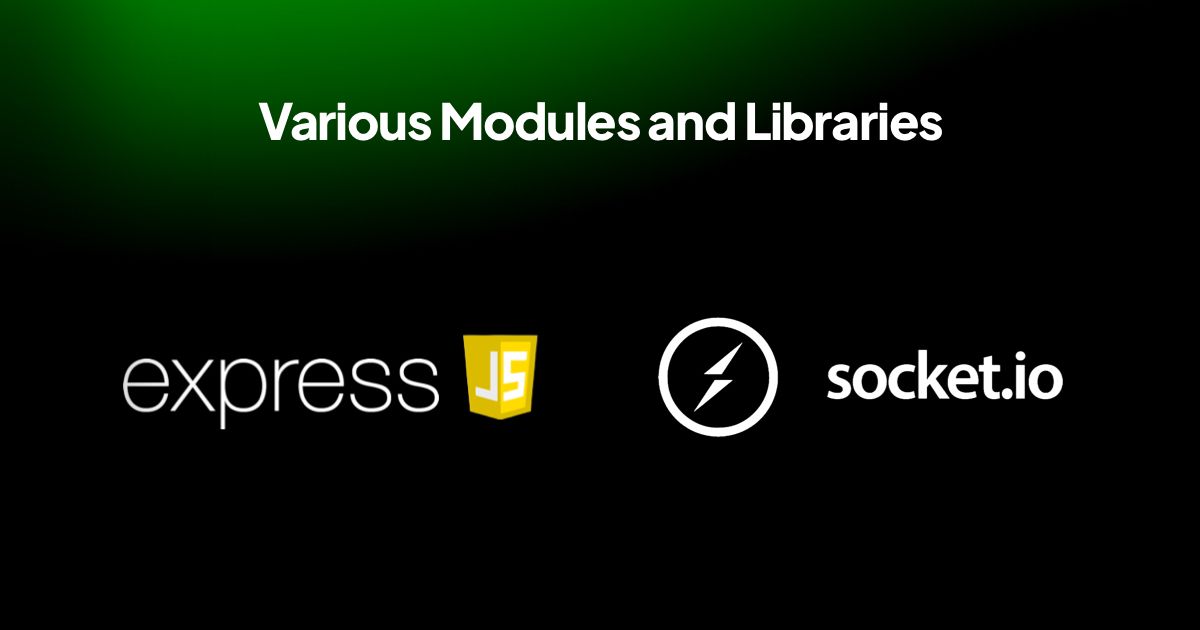Node.js has gained immense popularity among developers in recent years, and for good reason. As an open-source, cross-platform, and scalable runtime environment, it has become a popular choice for building fast and efficient web applications. In fact, many businesses are now opting for Node.js development services for their web development projects.
If you're still unsure about whether Node.js is the right choice for your next web development project, then this article is for you. In this blog, we'll explore the top 7 reasons why you should consider using Node.js for your next web development project, and how it can benefit your business.
So, let's dive in!
Reasons to choose Node.js
1. Excellent Performance
Node.js is well-known for its high performance and scalability, making it an excellent choice for web development projects. Its non-blocking I/O model allows developers to handle multiple connections simultaneously, without causing a delay or blocking the process. This makes Node.js perfect for developing real-time applications, such as chat applications or online gaming platforms.
Additionally, Node.js offers an event-driven architecture that minimizes the use of threads, which can be resource-intensive. As a result, Node.js is capable of handling large volumes of traffic and processing data at high speeds, making it a top choice for building high-performance web applications.
2. Simple to Use and Learn
One of the most significant advantages of Node.js is its simplicity. It is relatively easy to use and learn, especially for developers who have experience with JavaScript. The Node.js runtime environment uses JavaScript as its primary language, making it easier to switch between front-end and back-end development. This means that developers can use the same language and coding style for both client-side and server-side development, resulting in increased efficiency and reduced complexity.
Moreover, Node.js has a vast community of developers who create and maintain packages and libraries, making it easier to develop complex applications. These packages and libraries are designed to make development more accessible, allowing developers to build applications more quickly and efficiently. Additionally, there are many online resources, tutorials, and courses available that can help developers learn Node.js.
Another advantage of Node.js is that it offers a clean and concise code structure, making it easier to understand and maintain. It also has a straightforward event-driven architecture that is easy to understand and use, making it a popular choice for building scalable applications.
If you're planning to hire developers for your next web development project based on Node.js, you'll find that they are in high demand, and for good reason. With their expertise in Node.js development, they can help you create fast, scalable, and efficient web applications that meet your business needs. Whether you're building a small website or a large-scale web application, Node.js is a great choice for any web development project.
3. Large and Active Community
Node.js benefits from having a substantial and engaged community of developers, which is continuously striving to enhance the platform and design novel modules and libraries that extend the capabilities of web applications. The community is instrumental in maintaining the stability and security of Node.js by detecting and addressing bugs and security threats.
The strong community presence makes it convenient for developers to obtain assistance and resources while creating their web applications. Furthermore, the community's commitment to innovation and growth ensures that Node.js will evolve and improve over time, making it a smart and reliable option for long-term web development projects.
4. Various Modules and Libraries

Node.js provides an extensive collection of modules and libraries that can be conveniently integrated into web development projects to enhance their functionality. Two highly sought-after modules for Node.js are Express and Socket.io.
Express is a widely used framework that simplifies the process of building web applications and APIs. On the other hand, Socket.io is a well-known library that facilitates real-time communication between servers and clients.
These modules and libraries enable developers to include new features in their web applications, boosting their performance. They also promote code reusability, streamlining the development process, and lowering the overall cost of web development projects.
5. More Suited to Real-time Programs
Node.js is highly efficient in handling real-time applications, making it an ideal choice for businesses that require real-time data processing. Its ability to handle multiple connections at the same time through its event-driven architecture makes it perfect for applications that require real-time updates, such as chat applications, online gaming, and stock trading platforms.
Additionally, Node.js is equipped with web sockets and other real-time protocols, allowing developers to easily build scalable and responsive applications. By leveraging the real-time capabilities of Node.js, businesses can provide their users with a seamless and interactive experience, which can lead to increased engagement and retention.
6. Micro Services Architectural Style
Micro services architecture has become increasingly popular in recent years due to its ability to develop and deploy software quickly and efficiently. Node.js is a perfect fit for micro services architecture due to its lightweight, modular structure and ability to handle multiple requests simultaneously. With Node.js, developers can easily create micro services and deploy them independently, allowing for faster development and easier maintenance.
Additionally, Node.js's non-blocking I/O model allows it to handle large amounts of data and traffic without slowing down, making it ideal for high-traffic micro services applications. By using Node.js for micro services architecture, businesses can benefit from increased scalability, flexibility, and agility, enabling them to respond quickly to changing market demands and stay ahead of the competition.
Overall, Node.js is an excellent choice for developing micro services-based web applications, and businesses can leverage its benefits to improve their web development projects.
7. Cross-platform

One of the major advantages of Node.js is its cross-platform compatibility. Node.js is designed to work on various operating systems such as Windows, macOS, and Linux, making it easier for developers to create applications that can run seamlessly on different platforms. This means that you don't need to worry about platform-specific code, which can save you a lot of time and effort.
Node.js is built on the V8 JavaScript engine, which makes it easy for Node.js developers to write code in JavaScript for both the server-side and the client-side. The same code can be used on both the server and the client, which reduces the time and resources needed for development.
Node.js also provides a unified API for accessing the underlying system resources, such as the file system, network interfaces, and operating system calls. This allows developers to write platform-independent code, which is compatible with different platforms.
Moreover, Node.js offers a wide range of tools and frameworks that can be used to build cross-platform applications. These tools and frameworks provide developers with a rich set of features and functionalities that can be used to create powerful and scalable applications.
Conclusion
Node.js is a powerful and versatile runtime environment that offers numerous advantages for web development projects. From its speed and scalability to its simplicity and ease of use, it is clear why Node.js has become a popular choice for developers worldwide.
Interested in building faster applications using Node.js? Check these stunning free templates based on Node.js!




